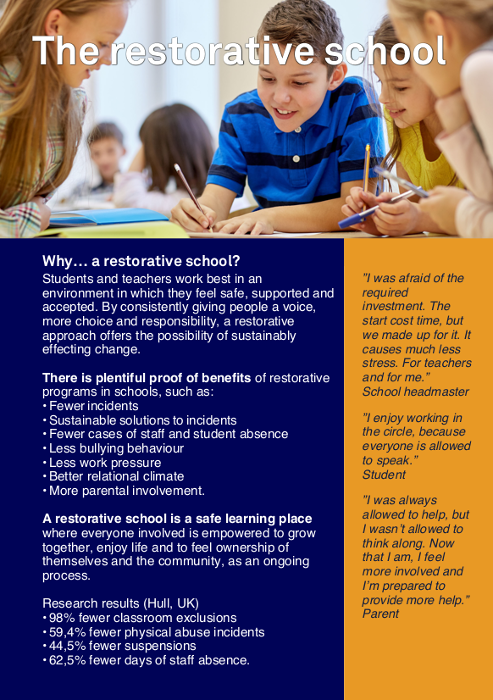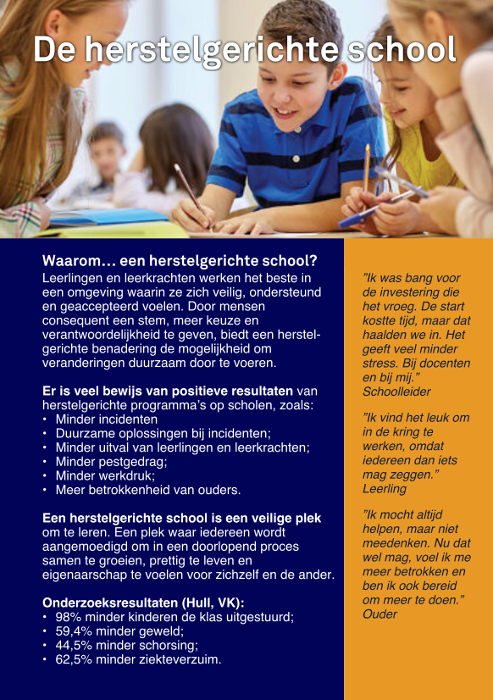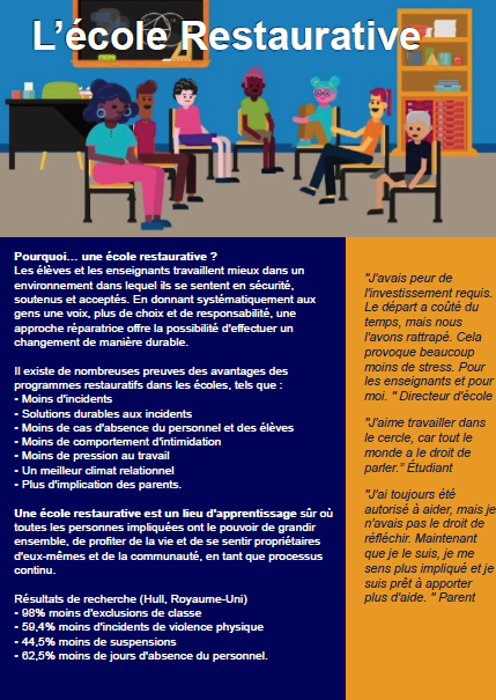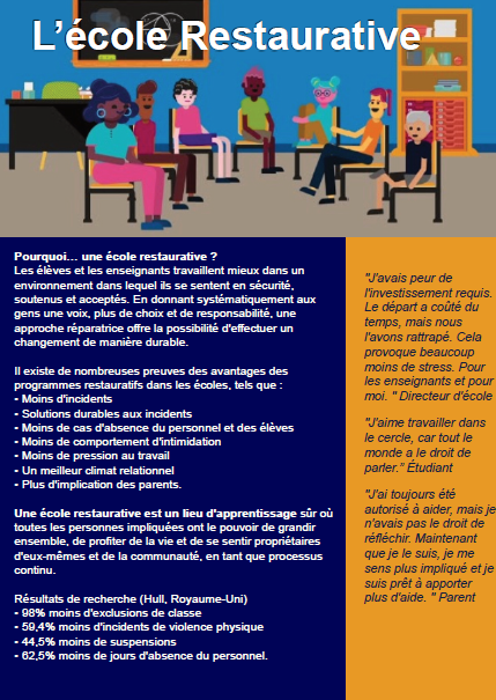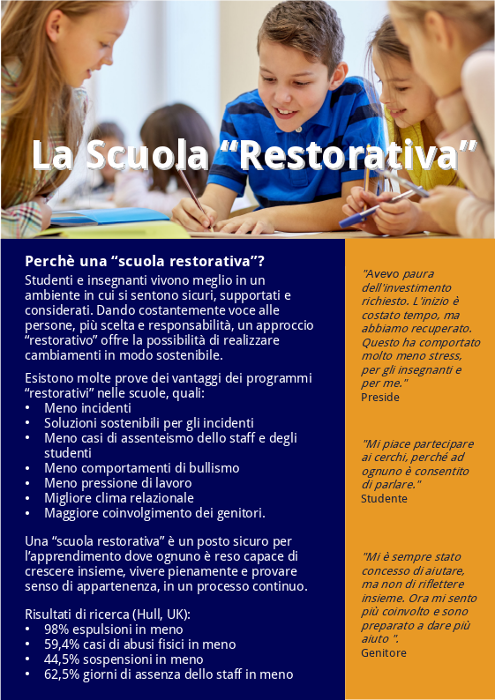About
Students and teachers work best in an environment in which they feel safe, supported and accepted. In addition, environments that have strong school climates foster the social, emotional, and academic well-being of all students. A healthy community with strong relationships is a conditio sine qua non for schools that want to tackle today’s and tomorrow’s challenges in an innovative and sustainable way.
The use of restorative approaches is supportive to that process. By consistently giving people more voice, more choice and more responsibility, Restorative approaches can realize a shift in the culture of an organization.There has been growing evidence of various positive outcomes emerging from restorative programmes in schools such as reduced rates of exclusions, reduced incidents of bullying, mproved learning outcomes etc.. But to be effective, restorative approaches must be in place across the entire school and till now however restorative practices have only been introduced fragmentarily in schools in Europe;
RESTORE is a 36 month project whose ambition is to assist primary and secondary schools to become restorative organisations through developing, experimenting and evaluating a generic program and a coaching framework that can be reproduced in interested schools all over Europe. RESTORE project is an innovative collaboration between training organisations supporting schools, local authorities and research centre located in 6 different EU countries and having expertise or experience in Restorative practices. They will together design, experiment and assess impact of a transnational “Restorative school change program” that will consist
– A theoretical framework (vision) with a definition of a restorative school
– Strategical implementation guidelines: an implementation model mapping how a school can evolve into a sustainable restorative school, including an ongoing assessment tool which can be used throughout this process
– Training to utilization of restorative practices : methodologies and interventions which will be used to implement the theory, to create a restorative school.
Each partner will support 1 volunteer Demonstration school that will test the implementation of the RESTORE program along 18 months. Several transnational learning activities will enable upskilling the partners trainers and leaders from demonstration schools. Impact Assessment on improvement of school climate will be delivered by an external researcher and will help partners demonstrating the relevance and effectiveness of the program. Several multiplier events and numerous dissemination activities will engage potential users and beneficiaries and advocate for exploitation of this affordable, accessible and transferable model.
#####
RESTORE: WHAT? WHY? HOW? WHO?
> RESTORE WHWW (PDF)

